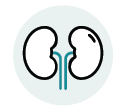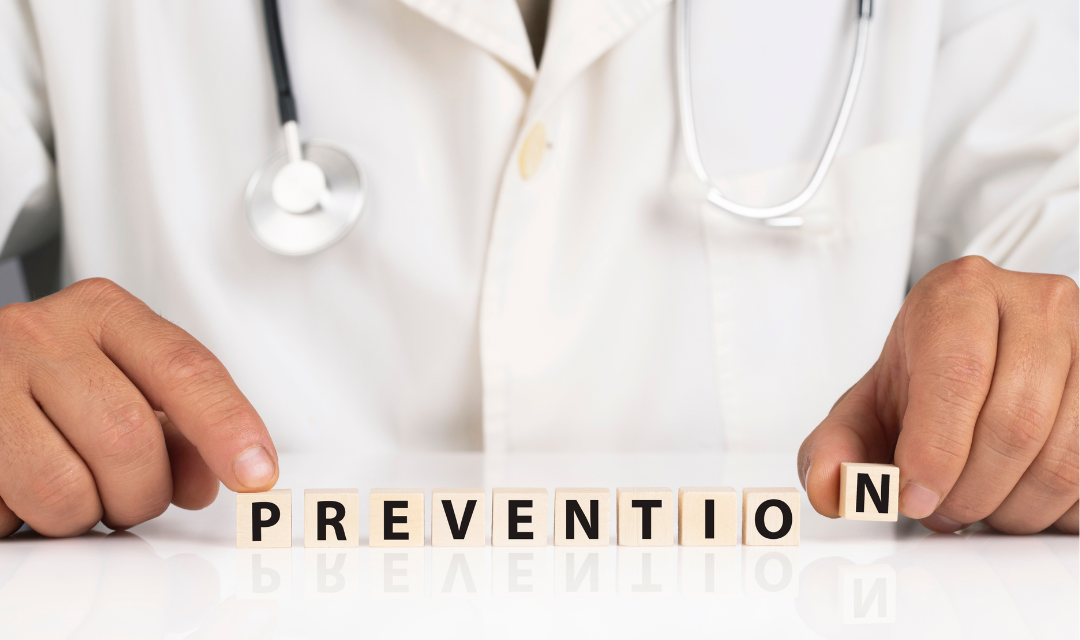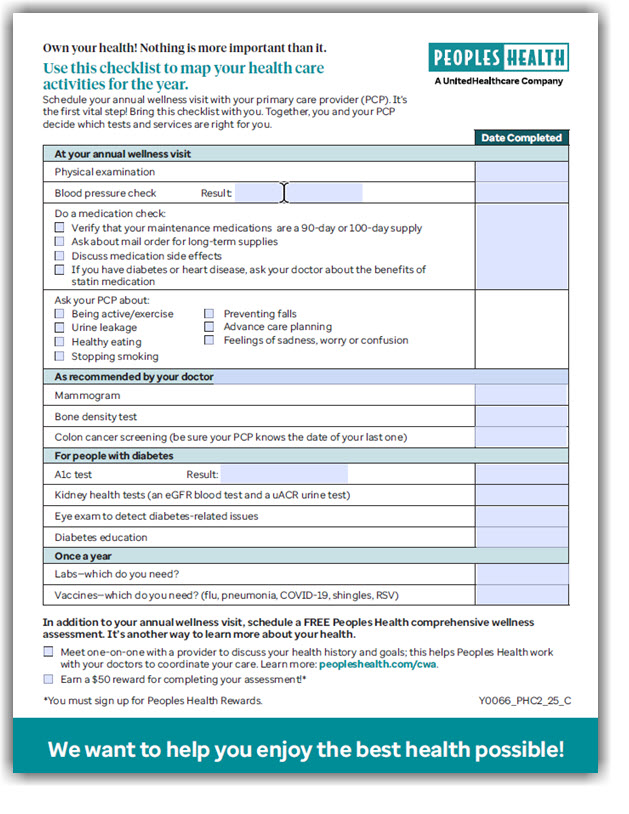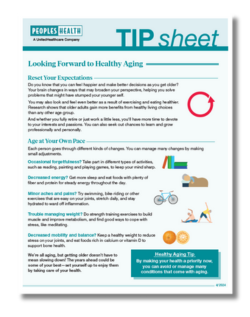Regular screenings and checkups can help catch issues early and give you peace of mind about where you are with your health. Read on to learn how taking steps to get key preventive services supports your health and well-being. Talk with your primary care provider if you have questions.

Blood pressure check
Regular blood pressure checks are the only way to know if your
blood pressure is in a healthy range.

Blood sugar test to screen for diabetes
An annual A1c test checks the sugar in your blood and is important to help diagnose, treat and manage diabetes.

Bone density test
Osteoporosis is a disease that weakens bones. A bone density test is a quick and painless way to measure your bone strength. As we age, bone regeneration slows, making bones more fragile. This means your body may lose bone faster than it can replace it, and a minor fall can end in a fracture. If a test shows signs of osteoporosis, your doctor can help you create a plan to avoid fractures and other complications.

Colon cancer screening
Regular colon cancer screenings can help find growths, called polyps, before they become cancerous or find cancer early. There are several screening options available, including a colonoscopy or at-home stool tests. Ask your doctor about the option that’s right for you.

Kidney health evaluation
Some medications and many common health conditions—including diabetes, high blood pressure and infections—can cause kidney problems. Annual testing and monitoring is done through a simple urine test and a blood test to check kidney function and kidney damage (which may not show symptoms). These tests, when done together, give key information about kidney health.

Mammogram
Breast cancer is the second most common cancer among women, and risk increases with age. Research shows that early detection saves lives—regular mammogram screenings can catch cancer before it becomes life-threatening, and this improves the chance of a full recovery.

Prostate cancer screening
The prostate is a small gland in the male reproductive system. Prostate cancer often grows slowly and may show no early symptoms. All men are at risk, but African American men are at a higher risk. A screening test can find cancer or pre-cancer before symptoms appear.

Retinal eye exam
A retinal eye exam with an optometrist or ophthalmologist is the best way to find medical conditions like glaucoma and cataracts. This is a valuable exam, even if your vision seems
fine. Some eye conditions don’t show early symptoms. Diabetes, for example, can silently damage the eyes and, if untreated, may lead to vision loss or blindness.










